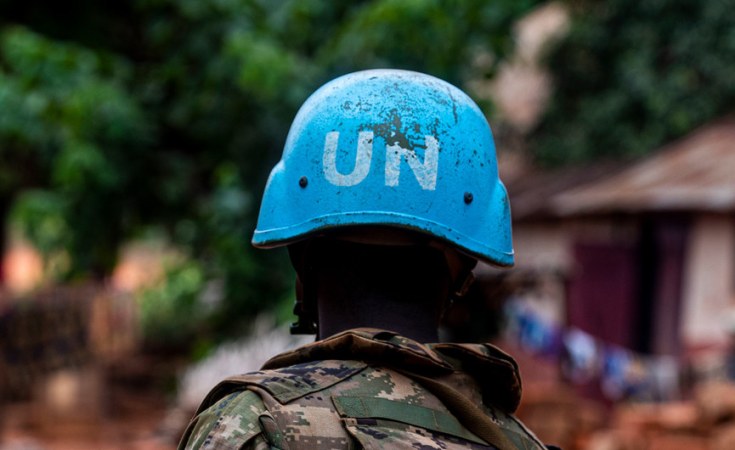Yaounde, Cameroon — The Central African Republic government has rejected calls from the opposition and civic society groups to postpone the country's first local elections in more than 35 years. Opponents of the polls say funds are not available and security remains fragile at best, but the CAR government and the United Nations assert the October elections will help restore democracy and peace to the troubled state.
The Central African Republic's opposition and civil society groups say a day hardly goes by in the country without reports of rebels either killing civilians or abducting people for ransom.
Rebels and armed groups also loot for survival and create chaos in towns and villages across the borders in Cameroon, Sudan, South Sudan, and three other neighboring countries.
Martin Ziguele is the leader of the MLPC party, the Movement for the Liberation of the People of the CAR. He also served as the country's prime minister from 2001 to 2003.
He said the violence makes it impossible for local elections to be held in October of this year as the CAR government plans.
Ziguele said besides asking the government to bring back peace to the troubled state before any local elections, opposition and civil society want structural reforms so that the CAR has an independent elections management body. He said he is surprised that the CAR wants to organize local elections this year when the political, economic and security situation that prevented elections in 2023 has not improved.
Ziguele spoke Thursday at a press conference in the CAR capital, Bangui, and said elections will be disrupted if the central African state's government fails to listen to opposition and civil society.
Ziguele did not say his party or others would disrupt the polls.
Opposition and civil society groups accuse CAR President Faustin-Archange Touadera of preparing to rig the local elections in favor of his party, the United Hearts Movement, or MCU. They say by organizing an August 2023 referendum to scrap a two-term limit and extend the presidential mandate from five to seven years, Touadera indicated he wants to consolidate power.
Touadera, who was voted president of CAR in 2016, rejects the accusation and said he is responding civilians' call to lead the country out of sectarian violence.
Maxime Balalou is the government spokesperson.
He said the government of the CAR has taken enough security measures to stop what he calls selfish opposition and civil society groups that want to see the central African nation in chaos by disrupting local elections. Balalou said it is an open secret that opposition and civil society groups calling for a boycott of polls are very unpopular and cannot democratically win local elections.
Balalou spoke Thursday on state TV. He said MINUSCA, the U.N. peacekeeping mission in the country, is protecting civilians and reducing a humanitarian, human rights and political crisis.
This month, MINUSCA and the United Nations Development Program signed a $1 million agreement to help civilians register and qualify to vote in the October local elections. The CAR says it needs $15 million to organize the elections, a date for which has not yet been made public.
The government says elections, which have not taken place since 1988 because of political instability and armed conflict will restore peace and democracy and reinstitute local governance and accountability.
The C.A.R. has been engulfed in violence and chaos since 2013, when predominantly Muslim Seleka rebels seized power and forced then-President Francois Bozize from office. A Christian-dominated militia called the anti-Balaka fought back, and both groups were accused of killing civilians.
The fighting has forced close to a million Central Africans to flee to neighboring countries.


